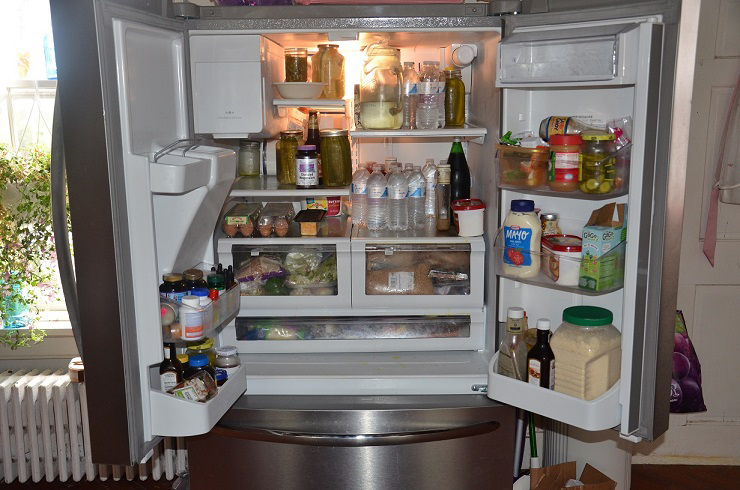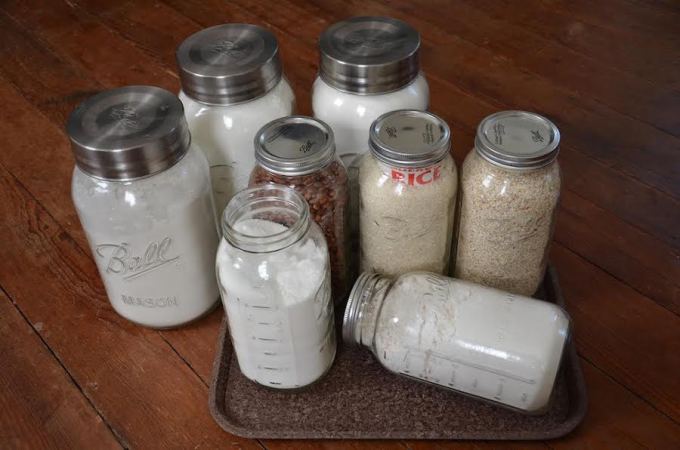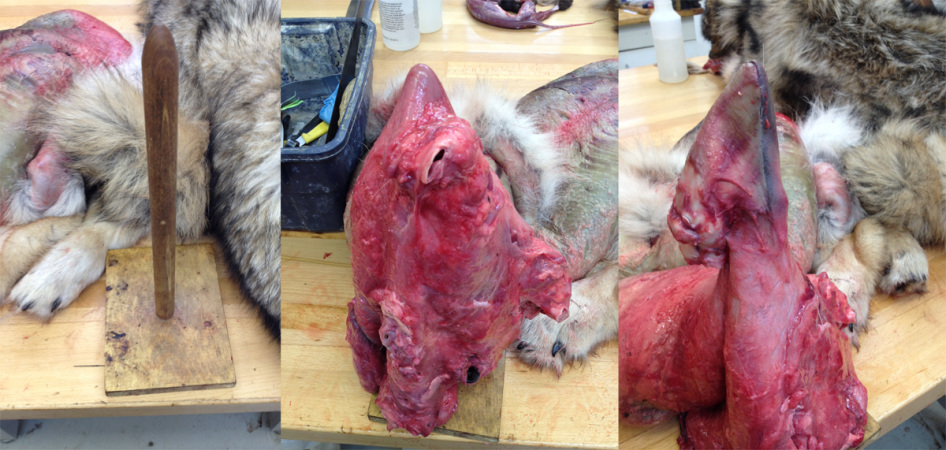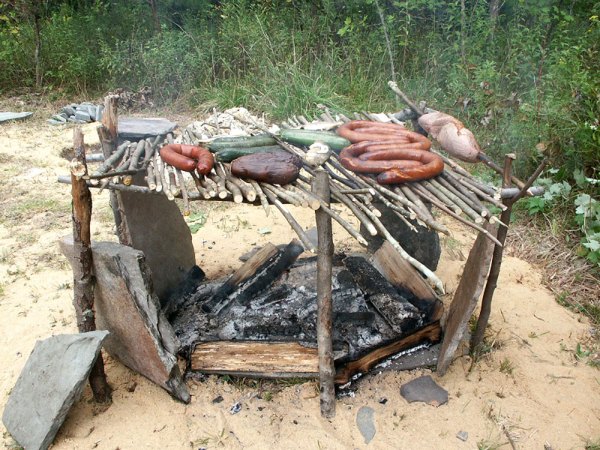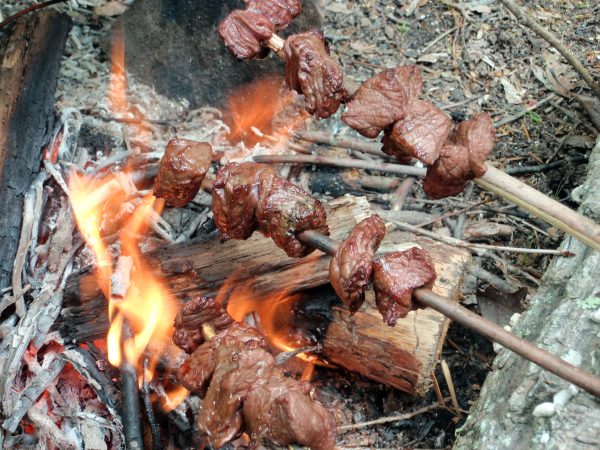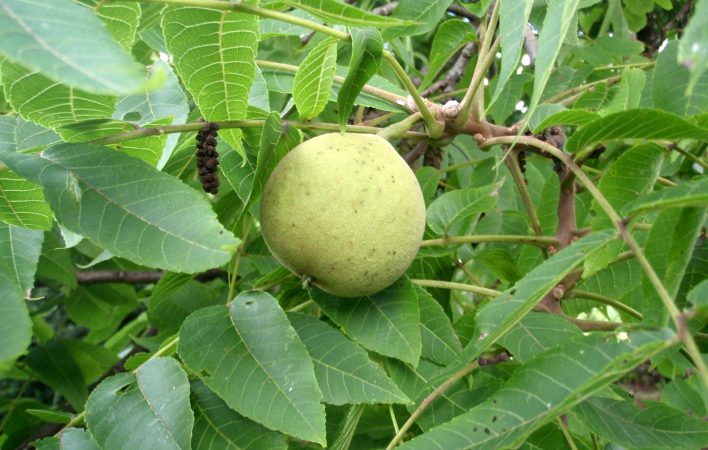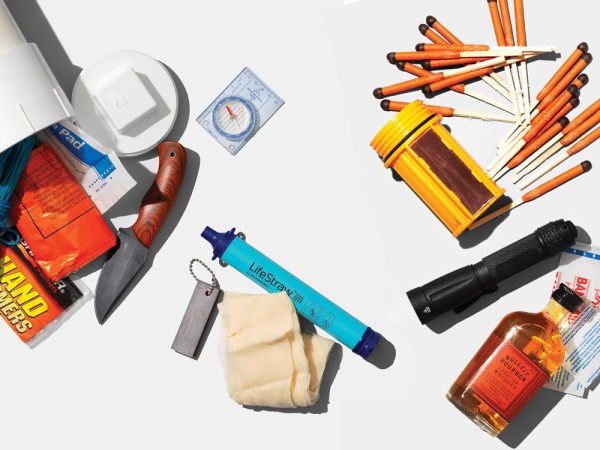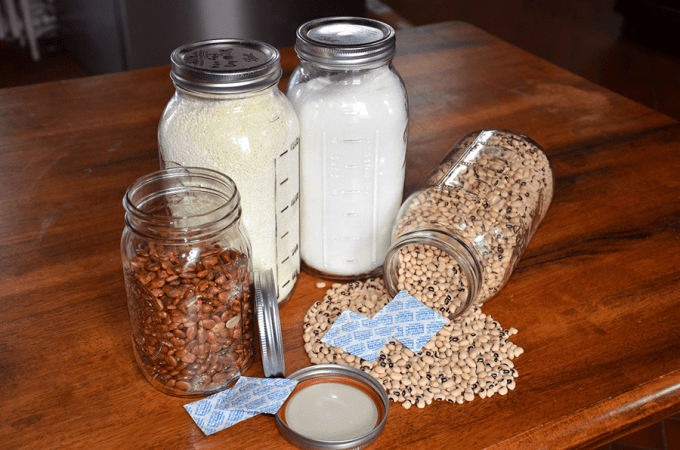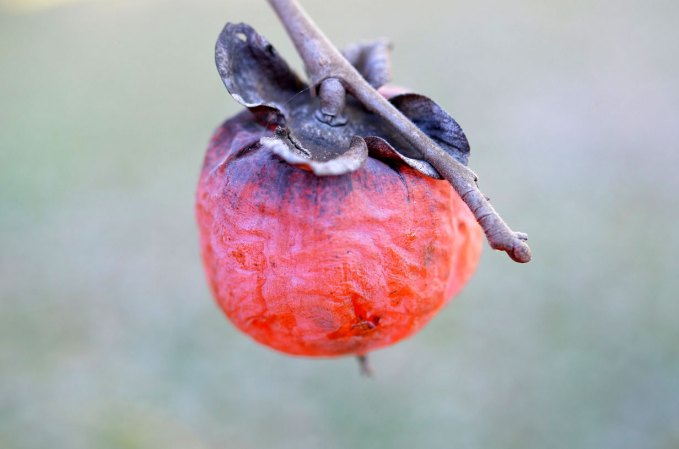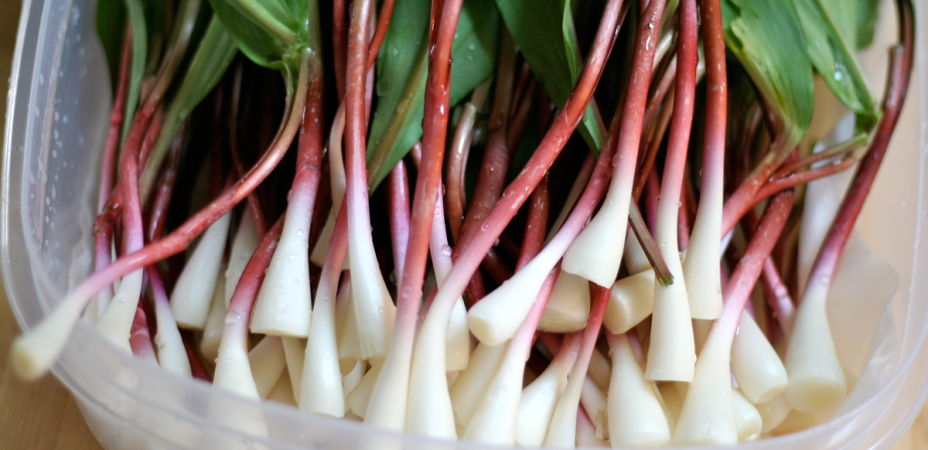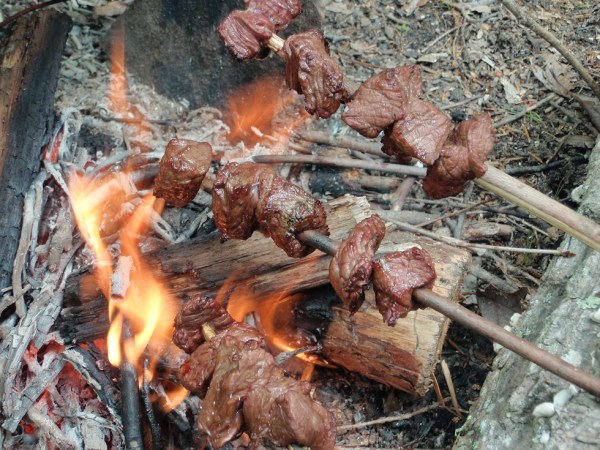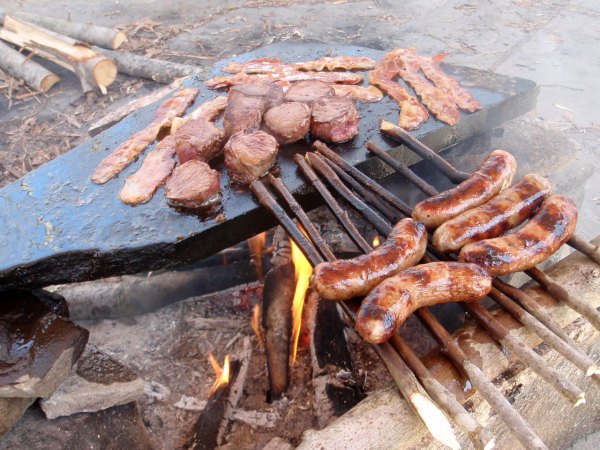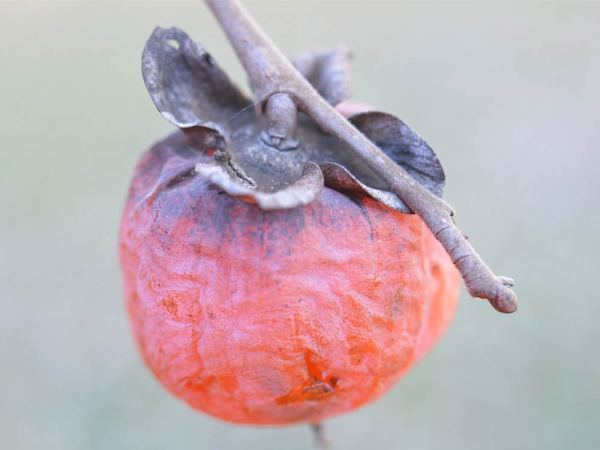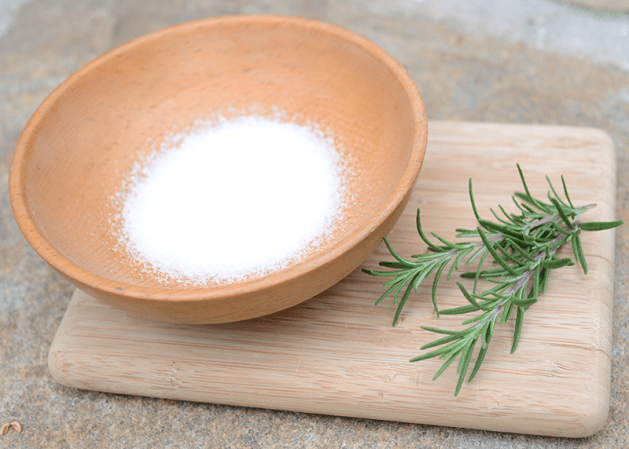The deer that you’ve hunted and the fish that you’ve caught can be some of the most satisfying meat you’ll ever eat. At each meal you remember the place you were, and time you spent. But what happens when you lose power to your freezer during a summer power outage? With ancestral food preservation techniques, we can save these wild foods (and many others) and prevent wasteful spoilage. Here’s how.
1. Make Jerky
Dried meat can last for a long time, it doesn’t require any special equipment to create – and you don’t have to keep it in the fridge or freezer. If you want to make your own jerky like our ancestors did, start with raw meat. Don’t use cooked meat – it will go bad in a few days and cause food poisoning. Use red meat for jerky making (although any mammal, bird, fish, or larger reptile meat will work with this technique). Cut the meat thin and across the grain. Trim off all visible fat. While the meat is still juicy, sprinkle on a little salt. You can also sprinkle sugar and/or spices like pepper, ginger, cumin, chili powder, etc. These additives are optional, but using salt will create a less hospitable environment for bacteria. Hang your jerky slices to dry in the sun, using an improvised rack or simply hang it on twigs and branches. Dry it in the sun until it becomes brittle and store it in a paper bag or cloth sack. It should last several weeks, even in warmer temperatures.
2. Pickle Your Veggies
A salty brine or an acidic bath can turn most veggies, hard boiled eggs, and even some fish and meats into savory sour pickles. Both salt and acidic environments limit the growth of bacteria and keep your food from spoiling. Pickles can be made by submerging the food in a vinegar and salt solution. Fermentation can also turn vegetables into pickles. Cabbage is one of the most popular fermented vegetables in the world: just look at kraut and kimchee. Fermenting can smell pretty rank a few days into the process, but just wait, and it will soon smell much more tempting. Cabbage naturally has the organisms on it to ferment, and all you have to do is smash it down into a glazed crock or other fermenting vessel, sprinkle on sea salt, press it down with a weight, and let it ferment.
3. Don’t Boil Your Eggs
Fresh eggs from your backyard birds can last for weeks outside of a refrigerator if you don’t wash them and you keep them in a cool dark place. The egg shell has a natural coating that protects it from spoilage. Store-bought eggs, however, have lost their natural coating in the washing process. Egg processors do apply mineral oil to extend the egg’s longevity, and you can do the same to extend it further. Wipe mineral oil on your raw egg shells and keep them in a cool dark place. These should last well over a week, but you should try to use them as soon as possible. Oddly enough, hardboiled eggs shouldn’t be kept longer than a day.
4. Dry Your Fruits
Dried fruits and veggies can last for weeks or months, and you can make your own dehydrator from something you probably already have: window screens. Pop the plastic screens off your home windows; set them up on a few cinderblocks to get air flow underneath; and dehydrate many types of food in dry, sunny weather. Just avoid galvanized wire screens, as these can leach into your food, creating off-flavoring and potentially introducing toxins into the food. Slice fruits and bulky vegetables into thin pieces. Apply a little fruit preservative powder (available at most grocery stores) or dip them in lemon juice.
5. Salt Some Pork
Encrusting your meats, fish, and other foods in salt is a great way to limit bacterial decomposition. The traditional salted hams of my home state of Virginia have been a global favorite for centuries. Salting usually starts out with a brine soak that lasts about a week, then progresses to a drying process buried in salt, sugar and perhaps spices.
Tell us how you’d handle a fridge full of food in power outage. Please leave a comment.
